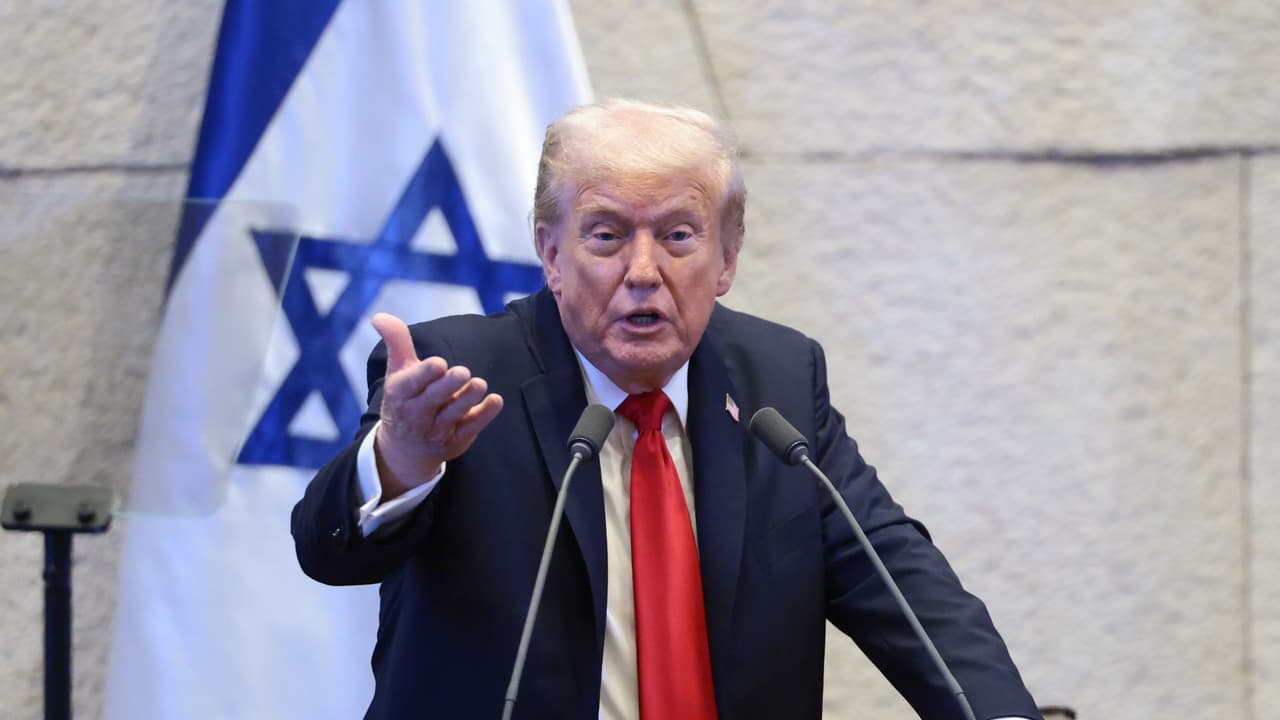Iran on Tuesday rejected US President Donald Trump’s call for peace, saying his words were “inconsistent” with Washington’s actions. Tehran accused the US of “hostile and criminal behaviour” toward the Iranian people.
US President Donald Trump’s recent call for a peace deal with Iran has been met with sharp criticism from Tehran, highlighting the deep mistrust between the two nations after months of heightened conflict.
Iran’s foreign ministry on Tuesday dismissed Trump’s remarks, describing them as “at odds with the hostile and criminal behaviour of the United States towards the Iranian people.” The statement referenced the US strikes on Iranian nuclear facilities during a brief war with Israel in June.
“The desire for peace and dialogue expressed by the US president is at odds with the hostile and criminal behaviour of the United States towards the Iranian people,” the ministry said.
The June Strikes That Changed Everything
The tensions trace back to mid-June when Israel launched an unprecedented bombing campaign on Iranian soil, targeting nuclear and military facilities as well as residential areas. The strikes reportedly killed more than 1,000 people, including civilians.
During this 12-day conflict, the United States struck key Iranian nuclear facilities, further complicating ongoing diplomatic talks. Iran retaliated with missile and drone attacks that killed dozens in Israel. A ceasefire was eventually brokered on June 24, but the scars of the conflict remain.
“How can one attack the residential areas and nuclear facilities of a country in the midst of political negotiations, kill more than 1,000 people including innocent women and children, and then demand peace and friendship?” the Iranian foreign ministry asked in its statement.
Trump’s Vision for Peace
Trump, speaking on Monday at the Israeli Knesset, framed his peace proposal as a hopeful gesture. “They got it from one side, from the other, and you know it would be great if we could make a peace deal with them,” he said of Iran, a long-time backer of Hamas.
“Would you be happy with that? Wouldn’t it be nice, I think. Because I think they want to.”
Trump emphasized that the “ball is in Tehran’s court” for any agreement to be reached. He also reiterated his rationale for withdrawing the United States from the Iran nuclear deal brokered under former President Barack Obama.
“I terminated the Iran nuclear deal and I was very proud to do it,” Trump said. “Yet even to Iran, whose regime has inflicted so much death on the Middle East, the hand of friendship and cooperation is open. They want to make a deal and we’re going to see if we can do something.”
He further underlined the US perspective on regional stability: “Neither the United States nor Israel bear the people of Iran any hostility. We merely want to live in peace.”
Tehran Strikes Back
Iran did not mince words in its response to Trump’s speech. The foreign ministry described his remarks as “irresponsible and shameful” and accused the United States of being “a leading producer of terrorism and a supporter of the terrorist and genocidal Zionist regime.”
“The United States… has no moral authority to accuse others,” Tehran said.
Trump’s call for Iran to renounce terrorism, stop threatening neighbors, end funding of militant proxies, and recognize Israel’s right to exist was thus met with outright rejection, underscoring the chasm of distrust that separates the two nations.
